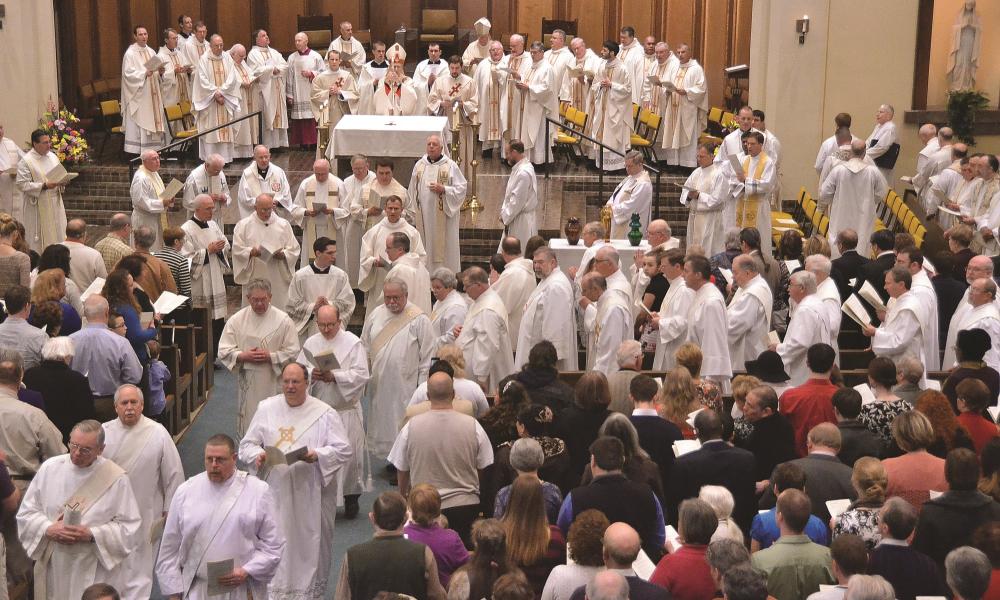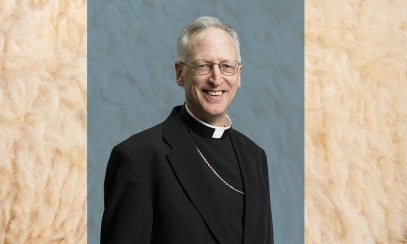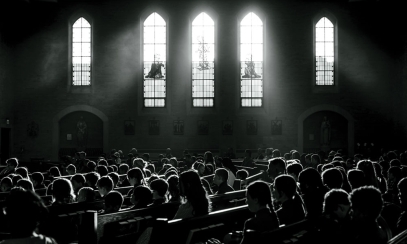
No Meat on Fridays all year long?
In my pastoral letter of Holy Thursday 2012, I invited the active Catholics of the Diocese of Lansing – those already in the Household of Faith – to a deepened commitment to prayer and purification. As we prepare to reach out to inactive Catholics and those who do not yet know the Lord – the Lost Sheep and those in the Court of the Gentiles – we first need to prepare our minds and hearts. We must know Jesus well, if we are to be his authentic disciples in this confused and troubled world.
As this Year of Prayer continues, my heart is encouraged by the many signs of the Spirit’s work among us. Changes great and small are taking place. Among the many stirrings in the hearts of the faithful, I sense an increased desire to renew the Church’s ancient practice of year-round Friday abstinence from meat. Allow me to share a little history about this practice.
In the days before the Second Vatican Council, Catholics in good health abstained from meat on Fridays throughout the year. This sign of Catholic identity was understood and respected even by non-Catholics. Ever wonder why McDonald’s decided in 1962 to put a piece of fish into a hamburger bun?
Friday abstinence has ancient roots. The 1907 Catholic Encyclopedia credibly documents the practice all the way back to “the dawn of Christianity.” That same source also indicates that failure to abstain was viewed as grave (mortal) sin.
The American bishops addressed this practice after the council. They knew that abstinence from meat was, for many individuals, no hardship at all. Some persons eat meat rarely or never, and many others find a seafood dinner to be every bit as appetizing a meal as a meat dish. Further, one of the goals of the council was to encourage individual Catholics to grow in personal spirituality and responsibility. It was thought in those days that Catholics would benefit from forms of penance that best fit the personal circumstances of each individual.
In November 1966, the National Conference of Catholic Bishops (today’s USCCB), issued its Pastoral Statement on Penance and Abstinence. This document covered a wide range of topics related to penitential practices. About halfway through, the bishops addressed the matter of Friday abstinence. The bishops stated that the practice of abstaining from meat would no longer be binding under pain of sin. American Catholics were asked to continue abstaining from meat, OR to find an alternative form of personal penance. The bishops wrote, “Among the works of voluntary self-denial and personal penance which we especially commend to our people for the future observance of Friday, … we give first place to abstinence from flesh meat. We do so in the hope that the Catholic community will ordinarily continue to abstain from meat by free choice as formerly we did in obedience to Church law.”
We know what happened next. The great majority of American Catholics began eating meat on Fridays, and have continued doing so for almost five decades.
This rejection of Friday abstinence and – let’s be honest – the wholesale failure to substitute an alternative penitential practice fail to honor either the spirit of the American bishops’ 1966 statement or even Christ’s call to a life of penance.
As an increasing number of persons are becoming aware, the 1983 Code of Canon Law provides in canon 1251 that “Abstinence from meat, or from some other food as determined by the Episcopal Conference, is to be observed on all Fridays, unless a solemnity should fall on a Friday.” Canon 1253 permits a national conference of bishops to “determine more precisely the observance of fast and abstinence as well as substitute other forms of penance, especially works of charity and exercises of piety, in whole or in part, for abstinence and fast.” It is the latter provision that recognizes the 1966 decision by the American bishops.
The sense of the faithful – the sensus fidelium – can sometimes be hard to gauge with exactitude. The hearts of many Catholics are moving toward a resumption of Friday abstinence. It is hard to foresee that it would ever again be required on pain of sin, but rather it would be restored in joy as the great sign of Catholic unity that it has been for most of the centuries since apostolic times.
In Baltimore last November, Timothy Cardinal Dolan, president of the USCCB, asked a new generation of American bishops to prayerfully consider “re-embracing Friday as a particular day of penance, including the possible re-institution of abstinence on all Fridays of the year, not just during Lent.” Even without further action by the USCCB, this address has been a source of great joy for many Catholics all over this country.
Many Catholics haven’t eaten meat on Fridays for years. Some never have. I myself am trying to change my own habits in this regard. This is sometimes difficult, especially when eating at other’s homes. Yet, it is pulling my mind more and more to the goodness of that Friday when Christ died on his cross for you and me. As we await the upcoming discussion by the American bishops, let’s each reflect on how best to make Friday a day of penance.
Bishop Boyea: A year of grace
The celebrations of Holy Week and Easter were powerful, moving and Spirit-blessed again this year. Among the many joys of those days is the gathering of the Diocese in St. Mary Cathedral on the morning of Holy Thursday for the Chrism Mass. Looking out over a packed church, filled with priests, deacons, religious and laypersons of all ages, I found myself thanking God for the privilege of serving this wonderful diocese. And I was mindful that, just a year ago, I issued my pastoral letter on the New Evangelization, Go and Announce the Gospel of the Lord.
In that letter, I wrote of the Household of Faith, the Lost Sheep and those in the Court of the Gentiles. For all these persons, but initially focusing particularly on our own Catholic faithful, I asked for a Year of Prayer. All across our Diocese, the response has been generous, and we are already seeing the fruits of the Spirit in our parish communities.
Shortly before Holy Week, we had a midweek gathering of the men and women who are the chairs of our parish pastoral councils. The evening was spent sharing experiences, perspectives, and hopes for the months to come. It was exciting to see how the Spirit’s work, effective in our many parishes, is taking such diverse forms.
These preliminary steps are being bolstered by other important initiatives. We have hired a director of New Evangelization, Craig Pohl. Our budget process and our internal staff deliberations are now structured to keep evangelization always before our eyes. We have had some good conversations about the real-world mechanics of spreading the good news in a digital age, and about the real-world obstacles, including limited parish resources and a belligerently toxic popular culture. In the months to come, we will continue to explore means – both familiar and developing – for introducing a confused and downcast world to the Son of God.
But always we must continue to understand the primary importance of first getting our own house in order. I am pleased to hear, from priests all over the Diocese, that Catholics are returning in numbers to confession. In some parishes, we face the happy challenge of long lines on multiple days. Confession and prayer. Prayer and confession. On our knees is how we can prepare for the work of discipleship.
The Spirit is at work all around us. He found Pope Francis in Buenos Aires, and called him to do a great work. He found you and me, and called us to do another part of his work. With courage, humility and hope, let us continue to pray for the Spirit’s outpouring of grace, here in the Diocese of Lansing.


